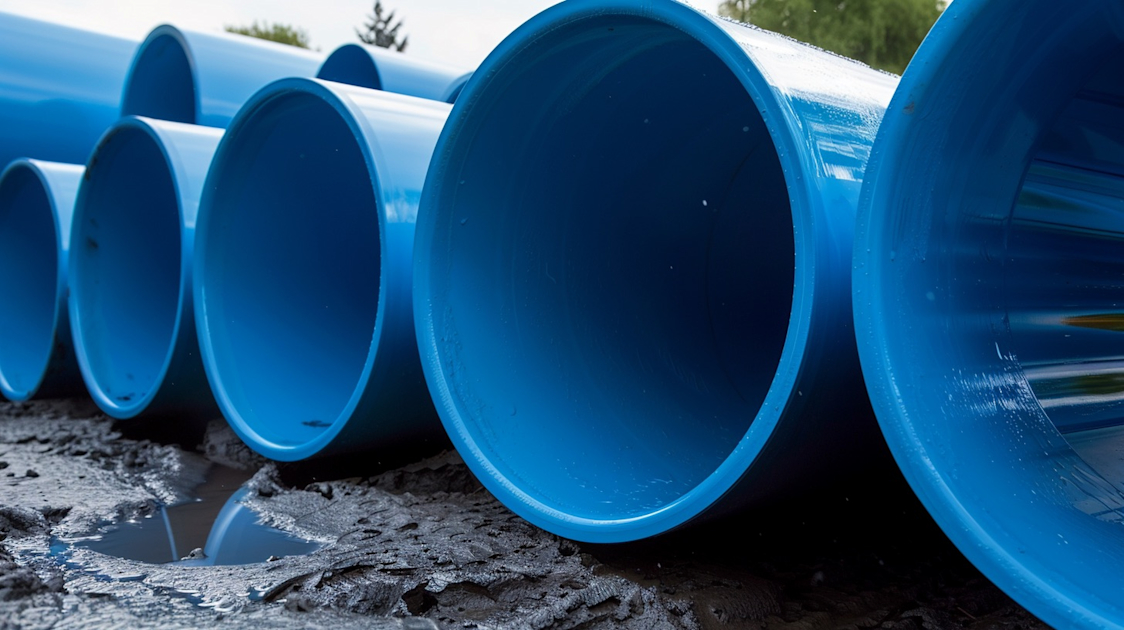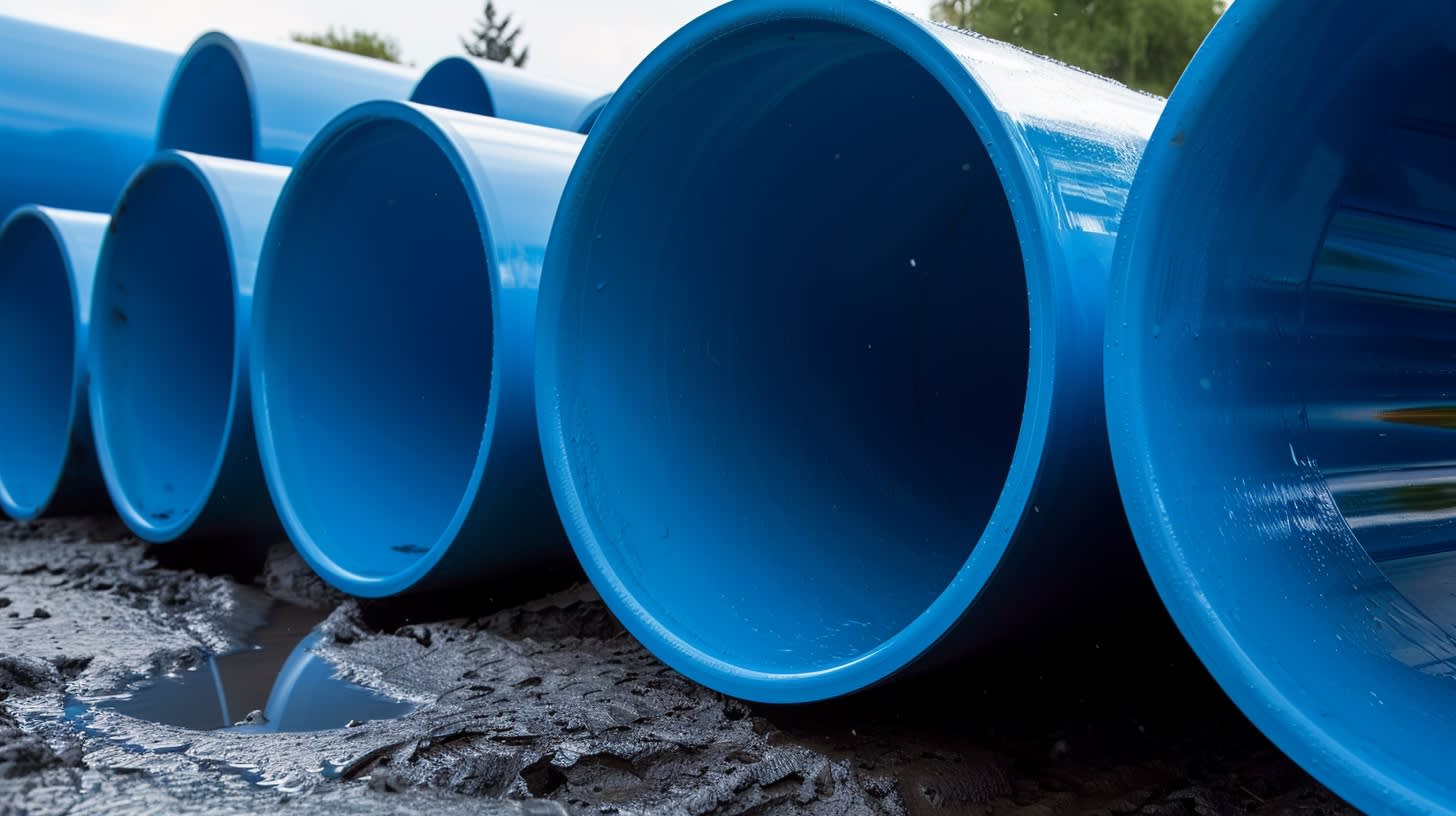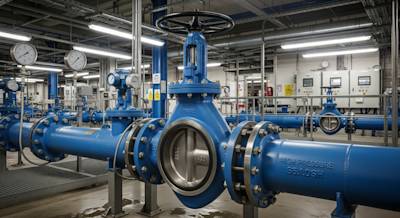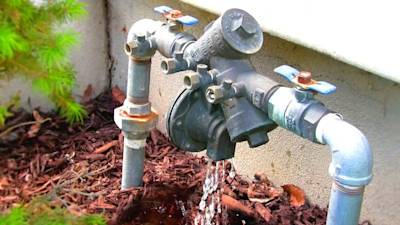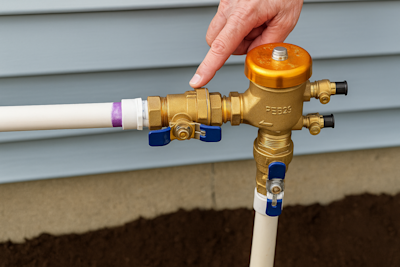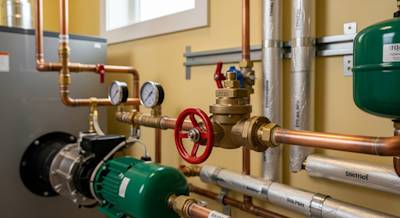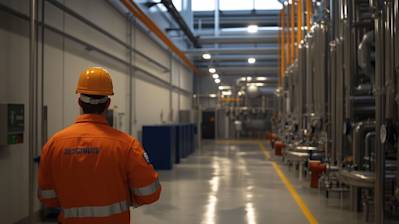Public utilities and governments across the globe have relied on large water pipes for their water supply systems. These pipes, which can range in diameter from 30 inches to even 60 inches, have become an essential infrastructure in every city, township, and municipality. While the term 'large water pipe' may seem straightforward, there is much more to these pipes than one might think. In this article, we will delve into the complex world of large water pipes, exploring their uses, types, material selection, installation process, and, most importantly, maintenance and repair works.
Uses of Large Water Pipes
Large water pipes play a crucial role in the water supply infrastructure, serving a multitude of purposes including:
- Transporting drinking water from water treatment facilities to houses and businesses
- Transferring wastewater from houses and industries to wastewater treatment plants
- Channeling storm-water runoff from cities to reservoirs or drainage basins
The Types of Large Water Pipes
There are various types of large water pipes. Their application is determined by the need, material durability and the budget involved. The types include:
- Copper pipes
- Steel pipes
- Concrete pipes
- Ductile iron pipes
- Plastic pipes i.e., PVC and HDPE
Copper Pipes
Copper pipes have been in use for decades in homes for domestic water supply and in industries for various applications due to their corrosion resistance and ease of installation.
Steel Pipes
Steel pipes are known for their strength and durability. They are primary choice for long-distance transportation of water and waste water owing to their high pressure rating and resistance to damage.
Concrete Pipes
Concrete pipes are widely used for transporting storm-water and wastewater due to their robustness and longevity. They are capable of withstanding heavy loads and aggressive soil conditions.
Ductile Iron Pipes
Ductile iron pipes are commonly used in water supply systems due to their strength, ductility, and resistance to wear and tear. They also have a high pressure threshold which makes them ideal for pressurized systems.
Plastic Pipes
Plastic pipes, such as PVC and HDPE, are preferred for their cost-effectiveness, lightweight nature and resistance to corrosion. Despite their relative softness, they are quite strong and durable and are used extensively in both residential and industrial applications.
Installation of Large Water Pipes
Installation of large water pipes is a complex process requiring precision and expertise. Initially, the path for the pipeline is prepared by digging trenches. Once completed, the pipes are laid down and connected using joints. The joints are then sealed to prevent leakage.
Maintenance and Repair of Large Water Pipes
Regular maintenance and timely repair of large water pipes are essential to ensure their smooth operation and longevity. Some common maintenance tasks include cleaning, inspection for leakages and potential damages, while common repair works include sealing leaks, replacing damaged sections, and unclogging blocked pipes.
Inspection is carried out using various techniques like CCTV inspection, acoustic monitoring, and visual inspection among others. Modern technology has enabled non-disruptive repair methods such as relining which provides an effective solution for pipeline repair without the need for complete replacement.
Large water pipes form the cornerstone of a community's water supply infrastructure. A clear understanding of their uses, types, installation and maintenance processes is therefore paramount in ensuring an efficient and reliable water supply system.
Frequently Asked Questions About Large Water Pipes
Why Are Large Water Pipes Used?
Large water pipes are often used in both residential and commercial settings for their higher capacity for water delivery. They're especially crucial in places that require a large amount of water supply or where the water has to be delivered over long distances. Large water pipes also help in maintaining sufficient water pressure in the system.
What Materials Are Large Water Pipes commonly made of?
Large water pipes are typically made from a variety of materials which include: - Polyvinyl Chloride (PVC): Frequently used due to its corrosion resistance and ease of installation. - Ductile Iron: A common choice for large diameter water pipes due to its strength. - Concrete: Used for very large diameter pipes, it's known for its durability and long service life. - Steel: Both stainless and galvanized steel pipes are used for their strength and resistance to high pressures. - Copper: Though more common in smaller diameter pipes, it also finds use in larger applications due to its longevity.
How Are Large Water Pipes Installed?
The installation process for large water pipes requires professional expertise and heavy machinery. The installation site is first prepared, which may involve excavation. After that, the pipes are laid down and connected. The connections are thoroughly checked to ensure they're watertight. Finally, the site is backfilled and restored.
How to Maintain Large Water Pipes?
Maintenance of large water pipes includes routine inspections to spot leaks, rust, or other forms of damage. It also involves cleaning the pipes to eliminate any build-up that could hamper water flow. In certain cases, a process called pigging is used, which involves sending a 'pig' (a device equipped to clean and inspect the pipe) through the pipe to remove debris and check for damage.
What Is the Lifespan of Large Water Pipes?
The lifespan of large water pipes depends on several factors including the material of the pipes, the quality of water running through them, and the conditions in which they're installed. Generally, a well-maintained large water pipe made of durable material can last for several decades.
Do Large Water Pipes Affect Water Pressure?
Yes, the size of water pipes can significantly impact water pressure. Larger pipes can deliver a greater amount of water under the same pressure as smaller ones. So, in settings where maintaining high water pressure is necessary, large water pipes become essential.
How Are Large Water Pipes Repaired?
Repairing large water pipes may involve several techniques depending on the specific problem. This could involve patching a hole, replacing a section of the pipe, or sealing leaks. In more severe cases, it might require the replacement of the entire pipe.
How Much Do Large Water Pipes Cost?
The cost of large water pipes can vary significantly based on factors such as the material of the pipe, the length needed, and the diameter of the pipe. It's always advisable to get a quote from a reliable supplier for the most accurate pricing information.
Pros and Cons of Large Water Pipes
Pros of Utilizing Large Water Pipes
Effective Transmission of High Water Volumes
Large water pipes enable the smooth and effective transmission of high volumes of water from source to point of use. This is particularly useful in areas where there is high demand for water
- Industrial zones that require significant amounts of water for their operations
- Densely populated areas where residential and commercial consumption is high
- Agricultural model where irrigation practices demand large volumes of water
Reduced Water Pressure Surges
The large diameter of these pipes reduces the occurrence of pressure surges or "water hammer". This reduces the potential for pipe damage and possible water supply disruptions.
Economies of Scale
Economies of scale can be achieved when large water pipes are used in large-scale water supply systems. The cost per unit of water transported can become lower with the increase in the volume of water that can be delivered through larger pipes.
Cons of Using Large Water Pipes
High Initial Capital Costs
Installation of large water pipes can be quite costly due to the following factors:
- The large diameter of these pipes warrants more material use, hence higher purchase costs
- The labor costs associated with the installation of large water pipes is comparatively high due to the size and difficulty of handling
- Machinery needed to fuse and lay these pipes also adds up to the overall costs
Maintenance and Repair Challenges
Large water pipes demand more complex maintenance and repair processes:
- The size of large water pipes can pose challenges in identifying leaks or ruptures and performing the necessary repairs.
- Not all leaks may be easily detected due to the extensive distribution of the pipes
- Repairs may necessitate greater man-power and specialized equipment, further escalating costs
Increased Risk of Contamination
Large water pipes, especially those that are poorly maintained, can pose higher risks of water contamination due to:
- Longer exposure time of water inside the pipes, which can promote the growth of bacteria
- Potential accumulation of sediments and microorganisms in low-flow areas within large pipes
- Greater vulnerability to external contamination sources due to the extensive pipe network
- Difficulty in fully disinfecting large pipes during water treatment processes
Summary
When it comes to managing the world's water supplies, a large water pipe plays a critical role. This massive conduit serves as the heart of our water systems, moving water from reservoirs to our homes and businesses. It's a key asset we all depend on, yet often take for granted. Just like the veins that pump blood around our bodies, these pipes function quietly behind the scenes to keep our lives running smoothly.
There's a whole science to the design and construction of a large water pipe. The size of the pipe, the material it's made from, how it's installed - everything matters. It's a world of pressure tests and flow rates, of corrosion resistance and earthquake resilience. And while it might not be the most glamourous aspect of civil engineering, it's undoubtedly one of the most important.
So next time you turn on the tap or flush the toilet, spare a thought for the unsung hero of our modern world - the large water pipe. It's an invention that truly underpins our society, delivering clean, fresh water day-in and day-out, without fail. We might not see it or think about it, but we'd all notice pretty quickly if the water stopped flowing.
About KYPD Plumbing
Welcome to KYPD Plumbing of Nicholasville, KY! We're your friendly neighborhood plumbing experts, dedicated to providing top-notch services for our community. KYPD Plumbing is known for our reliability, transparent pricing and the highest standard of customer service. We proudly serve you with our years of experience and unparalleled knowledge in dealing with all your plumbing issues. It's not just about pipes and wrenches for us - it's about being there when you need us the most and ensuring you feel valued and cared for. For all your plumbing needs, remember, we're just a phone call away!
Tags: large water pipe, plumbing, water flow,

